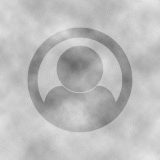PhD Physics Requirements
We offer graduate study leading to the PhD in Physics.
Course Requirements
Must take all courses as a letter grade and receive a B or better.
- Core Courses
-
- Physics 205: Classical Mechanics
- Physics 210A: Electromagnetic Theory
- Physics 210B: Electromagnetic Theory
- Physics 215A: Quantum Mechanics
- Physics 215B: Quantum Mechanics
- Physics 215C: Quantum Mechanics
- Physics 219: Statistical Mechanics
- Physics 237: Galactic Dynamics *
* Physics 237 may be substituted for Physics 205 provided the student has demonstrated competency in Lagrangian Mechanics to the Physics 205 instructor. If Physics 237 is used this way as a substitution, it cannot be used to satisfy the elective requirement.
- Elective Requirements
-
Must take all electives as a letter grade and receive a B or better. Theoretical physics students must complete a minimum of five advanced graduate courses, and experimental physics students must complete a minimum of three advanced graduate courses with a grade of B or better. For theoretical physics students, at least one of these courses must be in an area clearly distinct from the student’s field of specialization – such a determination will be made by the graduate advisor.
- Additional Course Requirements
-
These courses are taken the first year of graduate school.
- Physics 260A: Colloquium
- Physics 260G: Graduate Seminar
- Physics 500: Teaching Assistant Seminar (Fall only)
Course Descriptions can be viewed here.
- Advancing to Candidacy
-
The advancement exam is taken by the end of spring quarter in the student's third year. The exam begins with a short presentation in which the student assesses the overall situation in the field, and proposes a possible line of research, justifying its potential significance. The exam committee may then ask more general background questions. The scope and content of the exam are agreed upon beforehand. If the committee fails the student, the reasons will be given in writing, and the student must retake the exam by the end of summer quarter of the third year. After advancement, the Supervising Committee will be chaired by the student’s research advisor (or co-chaired by the advisor if they are not UCSB physics ladder faculty).
